Vegan Globetrotter is supported by our audience. When you purchase through one of our links, we may earn a small affiliate commission. As an Amazon Associate I earn from qualifying purchases. Your cost is not affected.
==================
Looking to whip up your favorite recipes without eggs? Whether you’re baking up a batch of muffins, making pancakes, or even tackling a fluffy meringue, there are *so* many ways to keep it vegan! In this guide, we’ll walk you through the best vegan egg substitutes for every type of recipe. From flax eggs to the magic of aquafaba (that amazing chickpea water), these swaps will have you cooking and baking with ease. So, grab your mixing bowl—let’s dive into the ultimate vegan egg-substitute lineup and get creative in the kitchen!
Vegan Egg Substitutes: Unlocking Plant-Based Possibilities in the Kitchen

Finding the right egg substitute can be a game-changer for anyone exploring vegan cooking. Eggs are often a key ingredient in traditional recipes, contributing to texture, flavor, and structure. Thankfully, plant-based substitutes can replicate these roles with surprising versatility, making it easier than ever to create vegan versions of your favorite dishes.
This guide will help you explore which substitute works best in different types of recipes, giving you the freedom to create delicious, plant-based dishes without compromising on texture or taste. Embrace these egg alternatives, and let them inspire new culinary adventures in the kitchen!
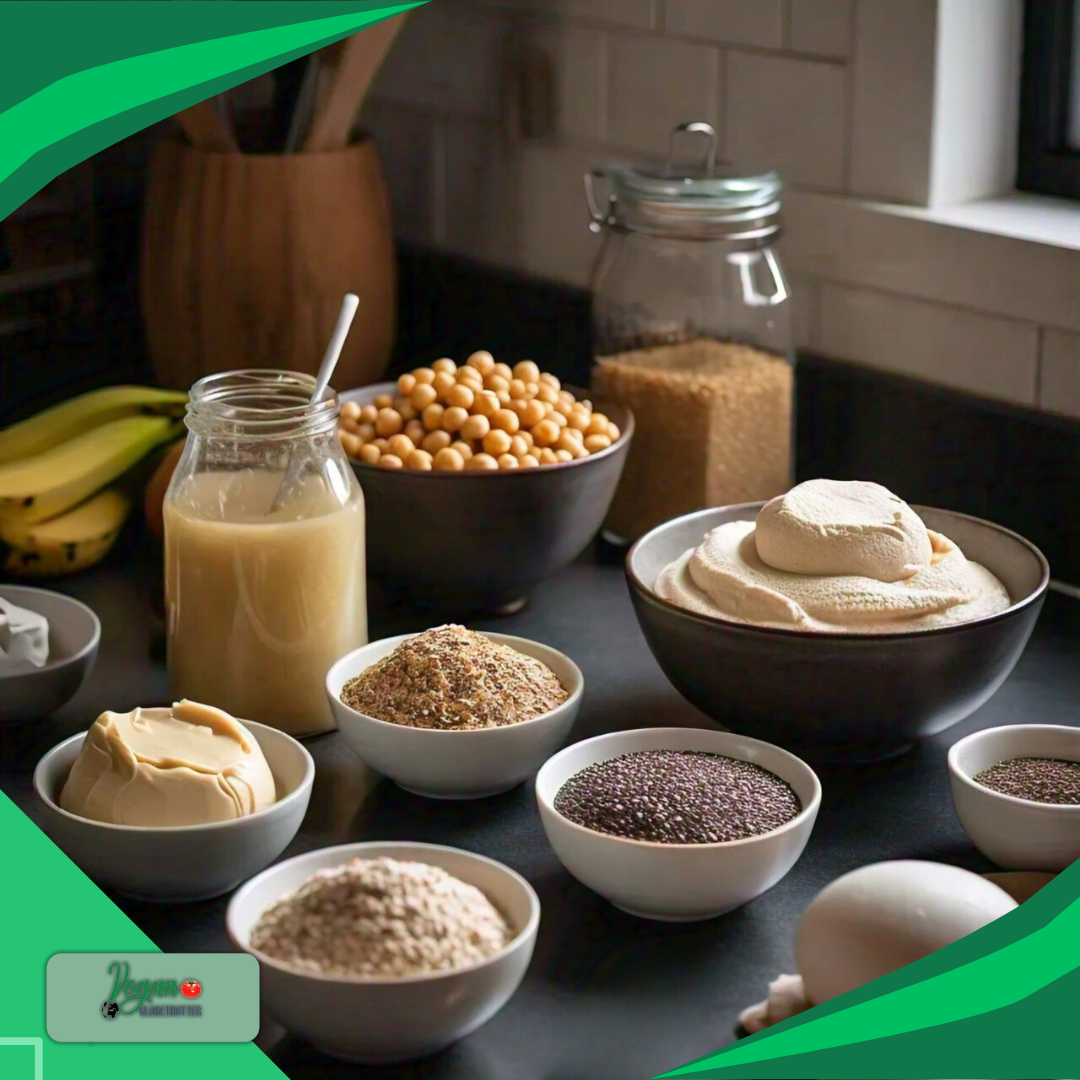
Key Takeaways
- Versatility in Substitutes: There’s a vegan egg substitute for every type of recipe. From chia or flax eggs for baked goods to aquafaba for airy, whipped textures, each option brings something unique to the table.
- Texture and Flavor: Different substitutes yield different textures. For chewy, dense baked goods, try chia or flax seeds. For fluffy results, go with aquafaba or a baking soda and vinegar mix. Keep in mind that some options, like banana or applesauce, can add a mild flavor.
- Nutrition Boost: Vegan substitutes, especially flaxseeds, chia seeds, and tofu, add extra nutrients like fiber, protein, and omega-3s, making them a wholesome choice compared to traditional eggs.
Introduction to Vegan Cooking: A Beginner’s Guide to Plant-Based Deliciousness

Diving into vegan cooking opens up a world of vibrant flavors, nutritious ingredients, and sustainable choices! Whether you’re exploring veganism for health, environmental impact, or ethical reasons, this guide is here to help you discover just how exciting plant-based cooking can be. Vegan cuisine goes far beyond salads—it’s about crafting hearty, flavorful dishes that everyone can enjoy, from creamy pastas and savory soups to rich desserts. With the right ingredients and a few basic techniques, you’ll find it easy to create meals that satisfy and nourish.
We’ll explore essential pantry staples, like beans, grains, and spices, as well as unique vegan ingredients like nutritional yeast, tofu, and aquafaba. Plus, you’ll get practical tips on balancing flavors, adding texture, and making satisfying substitutions that mimic the taste and feel of traditional dishes. Whether you’re a kitchen newbie or a seasoned chef looking to expand your skills, vegan cooking has something for everyone. Let’s jump in and start creating meals that are as good for you as they are for the planet!
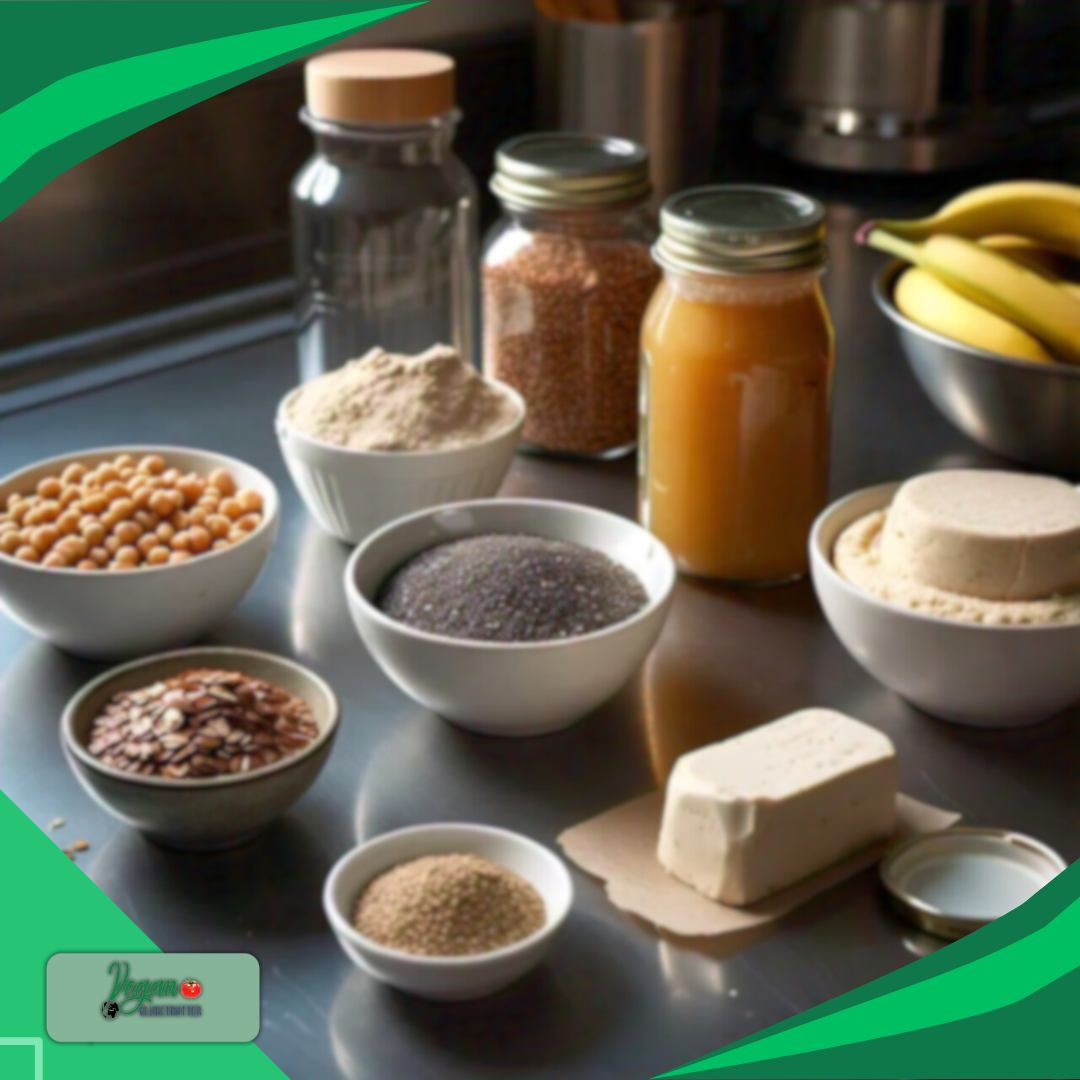
The Science Behind Vegan Egg Substitutes
When it comes to cooking and baking, eggs are multifunctional heroes—they bind, leaven, and add moisture to countless recipes. Replacing them with vegan alternatives means understanding how different substitutes mimic these functions, ensuring your plant-based dishes come out with just the right texture and flavor.
Binding Power
Eggs bind ingredients together, which is especially crucial in recipes like cookies or veggie burgers. Vegan substitutes such as flaxseeds and chia seeds work well for this because they form a gel-like consistency when mixed with water. This gel mimics the binding properties of egg whites, helping keep your ingredients intact without falling apart. Silken tofu also serves as an excellent binder in dishes like quiches or pancakes, while maintaining a neutral flavor.
Leavening Agents
Eggs add rise and airiness, especially in baked goods like cakes and muffins. Without eggs, vegan alternatives like baking soda and vinegar, when combined, create a bubbly reaction that adds lift to the batter. Aquafaba (chickpea liquid) is another leavening superstar; it can be whipped into fluffy peaks just like egg whites, making it ideal for recipes that need a light and airy texture, like meringues or mousses.
Moisture Providers
Eggs bring moisture to recipes, keeping cakes tender or adding creaminess to sauces. Mashed banana, applesauce, and even coconut yogurt are fantastic vegan substitutes that contribute moisture while also enhancing flavor and texture. Applesauce, for instance, is great in dense baked goods like brownies, providing both sweetness and softness, while mashed banana works well in pancakes or muffins.
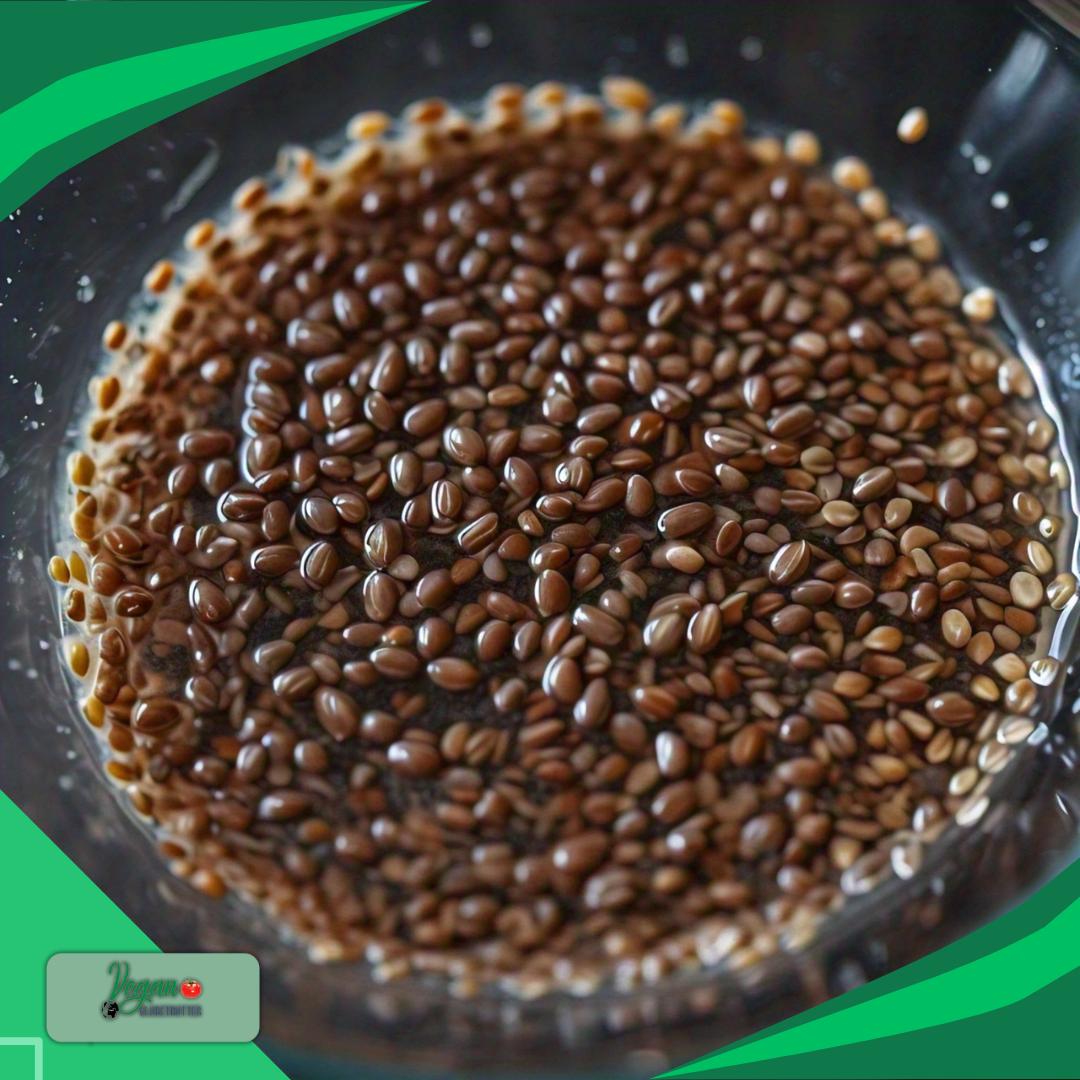
Understanding the science behind these substitutes empowers you to choose the best option for each dish. By matching the unique qualities of each substitute to the needs of your recipe, you’ll have the tools to cook and bake plant-based meals that rival traditional favorites!
Best Vegan Egg Substitutes for Baking: Elevate Your Plant-Based Desserts
Baking without eggs might seem daunting at first, but a variety of vegan substitutes can deliver delicious results while keeping your treats plant-based. Whether you’re crafting cakes, cookies, or muffins, knowing which egg substitute works best for each type of baked good can ensure your creations are just as moist, fluffy, and flavorful as their traditional counterparts. Here’s a closer look at some of the top vegan egg substitutes for baking.
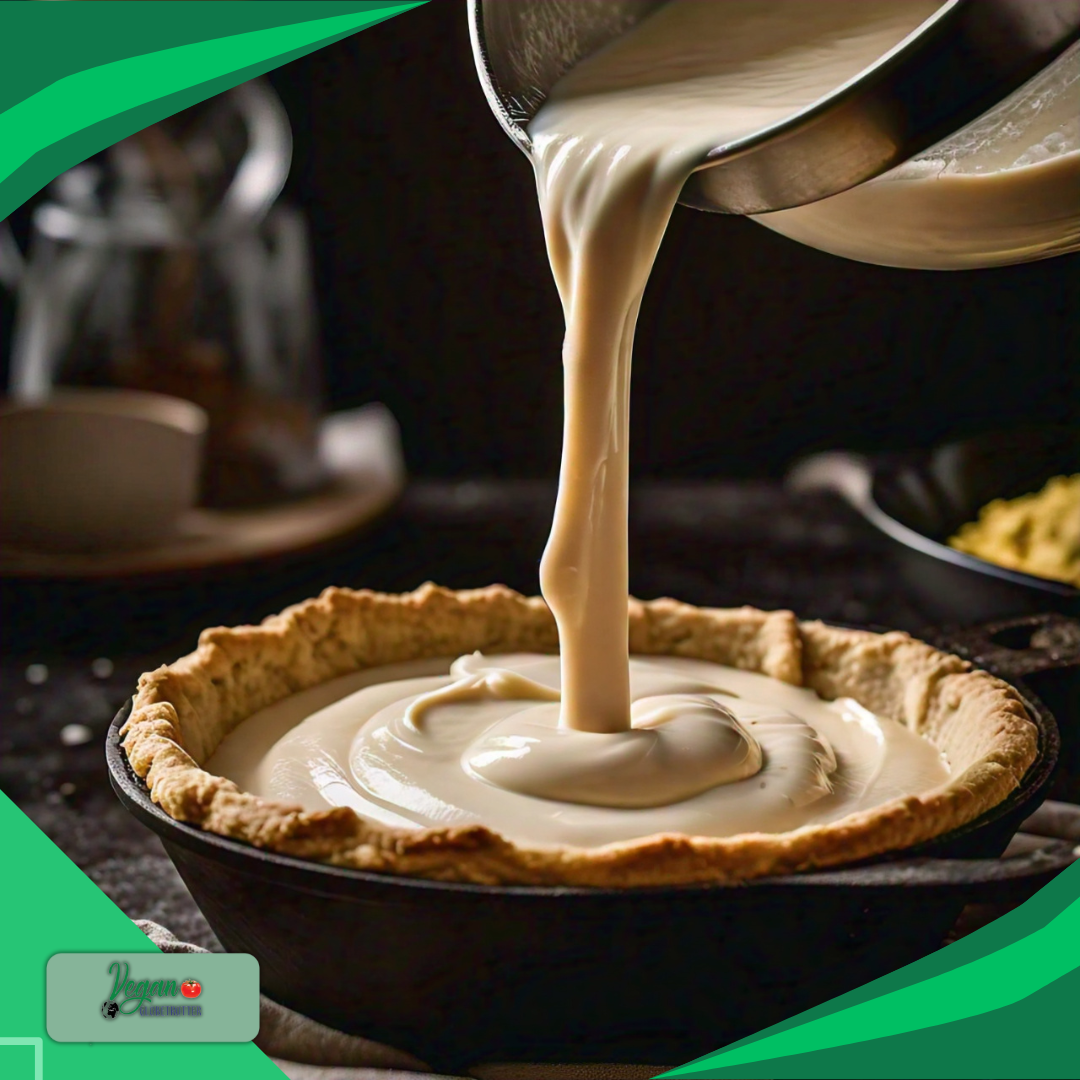
Flaxseed Meal
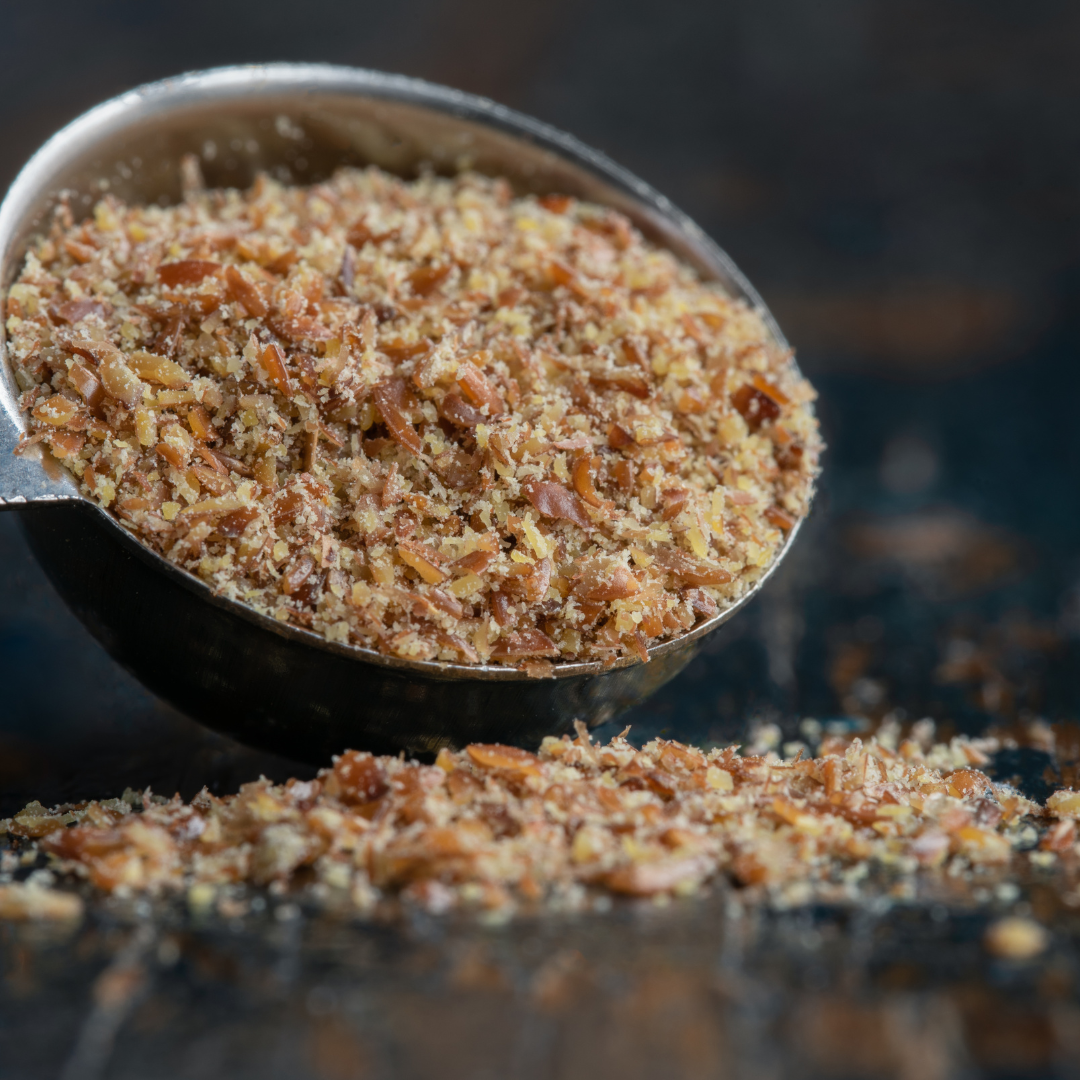
Flaxseed meal is one of the most popular vegan egg substitutes, especially in baked goods. To use it, simply mix 1 tablespoon of ground flaxseed with 3 tablespoons of water, and let it sit for about 5 minutes until it thickens. Flax eggs work wonderfully in dense items like cookies, muffins, and pancakes, adding a nutty flavor and healthy omega-3 fatty acids.
Chia Seeds

Similar to flaxseeds, chia seeds can be used to create a gel-like consistency that binds ingredients together. Mix 1 tablespoon of chia seeds with 3 tablespoons of water and let it sit for about 10 minutes. Chia eggs are great for recipes like brownies and dense cakes, contributing moisture and a slightly crunchy texture.
Aquafaba

Aquafaba—the liquid from canned chickpeas—is a game-changer for vegan baking. Three tablespoons of aquafaba can replace one egg, and it can be whipped into stiff peaks, making it perfect for recipes that require egg whites, such as meringues, soufflés, and light cakes. Its neutral flavor allows it to blend seamlessly into various baked goods.
Mashed Banana

Mashed banana serves as a great substitute in sweet recipes, lending natural sweetness and moisture. Use 1/4 cup of mashed banana for each egg. This option works well in muffins, pancakes, and brownies, although it will impart a banana flavor to the final product.
Applesauce

Unsweetened applesauce is another fantastic choice for moistening baked goods. It can replace one egg with 1/4 cup of applesauce. This substitute works particularly well in cakes, muffins, and quick breads, providing a tender crumb and subtle sweetness.
Silken Tofu

Blending silken tofu until smooth allows it to be used as an egg replacement in denser baked goods like brownies and cakes. Use 1/4 cup of blended silken tofu to replace one egg. This option adds protein and moisture without affecting the flavor.
Baking Soda and Vinegar
For recipes that need a lift, combining 1 teaspoon of baking soda with 1 tablespoon of vinegar (white or apple cider vinegar) creates a reaction that helps the batter rise. This method works well in fluffy cakes and cupcakes, ensuring a light texture.
By understanding these vegan egg substitutes and how they function in various baked goods, you’ll be well-equipped to tackle any recipe and create delectable, plant-based treats that everyone will enjoy!
Vegan Egg Substitutes for Savory Dishes
Nutritional Comparison of Vegan Egg Substitutes: Choosing the Best for Your Plant-Based Diet

When transitioning to a vegan diet or simply looking to reduce your reliance on animal products, understanding the nutritional profile of various egg substitutes is crucial. Each substitute offers unique benefits, including varying levels of protein, fiber, fat, and other essential nutrients. Let’s take a closer look at some common vegan egg substitutes—flaxseeds, chia seeds, silken tofu, and aquafaba—and compare their nutritional content to help you make informed choices for your meals.
Flaxseeds
- Protein: Approximately 1.3 grams per tablespoon (ground)
- Fiber: Around 2.8 grams per tablespoon
- Fat: About 3 grams (mostly healthy omega-3 fatty acids)
- Other Nutrients: Flaxseeds are rich in lignans, which have antioxidant properties, and they contribute to heart health. They also provide essential minerals like magnesium and phosphorus.
- How to Use: Combine 1 tablespoon of ground flaxseed with 3 tablespoons of water. Allow it to sit for about 5 minutes until it thickens into a gel-like consistency.
- Best For: Muffins, pancakes, and cookies, where you want a nutty flavor and added nutrition.
Chia Seeds
- Protein: Approximately 2 grams per tablespoon
- Fiber: Around 5 grams per tablespoon
- Fat: About 4 grams (includes omega-3 and omega-6 fatty acids)
- Other Nutrients: Chia seeds are nutrient-dense, providing calcium, iron, and antioxidants. They also promote hydration due to their ability to absorb liquid and form a gel-like consistency.
- How to Use: Similar to flax, mix 1 tablespoon of chia seeds with 3 tablespoons of water. Let it sit for approximately 10 minutes until it forms a gel.
- Best For: Denser baked goods like energy bars and brownies, as it provides excellent binding and moisture.
Silken Tofu
- Protein: Approximately 2 grams per tablespoon
- Fiber: 0.5 grams per tablespoon
- Fat: About 1.5 grams (varies depending on the brand)
- Other Nutrients: Silken tofu is a good source of calcium, especially if fortified, and provides essential amino acids. It’s also low in calories, making it a versatile ingredient in both savory and sweet dishes.
- How to Use: Blend 1/4 cup of silken tofu until completely smooth. You can use it directly in your recipe or mix it with other ingredients.
- Best For: Denser recipes like brownies, quiches, and creamy sauces, as it adds richness and protein without affecting the flavor significantly.
Aquafaba
- Protein: Approximately 0.5 grams per tablespoon
- Fiber: Minimal to none
- Fat: Essentially fat-free
- Other Nutrients: Aquafaba is low in calories and can be a great alternative for those looking for a lighter substitute. While it lacks the nutritional density of the other options, it is a useful binder and leavening agent in recipes.
- How to Use: Use the liquid from a can of chickpeas (or homemade chickpea water). For each egg you’re replacing, measure out 3 tablespoons of aquafaba. Whip it to achieve a frothy consistency, similar to egg whites.
- Best For: Light and airy dishes like meringues, mousses, and soufflés, where a fluffy texture is essential.
Mashed Banana
- Protein: Approximately 0.5 grams per 1/4 cup
- Fiber: About 1.5 grams per 1/4 cup
- Fat: 0.1 grams (virtually fat-free)
- Other Nutrients: Bananas provide potassium, vitamin C, and vitamin B6, making them a healthy addition to baked goods, though they do impart a distinct flavor.
- How to Use: Use 1/4 cup of mashed ripe banana to replace one egg. Ensure the banana is well-mashed for a smooth consistency.
- Best For: Dense, sweet recipes like pancakes, muffins, and quick breads, imparting a delightful banana flavor and moisture.
Applesauce
- Protein: About 0.1 grams per 1/4 cup
- Fiber: Approximately 0.5 grams per 1/4 cup
- Fat: 0 grams (fat-free)
- Other Nutrients: Applesauce offers some vitamin C and antioxidants. It serves mainly as a moisture provider, adding a subtle sweetness to recipes.
- How to Use: Substitute 1/4 cup of unsweetened applesauce for each egg. You can also adjust the sweetness of your recipe accordingly.
- Best For: Moist and sweet recipes such as cakes, brownies, and muffins, as it adds natural sweetness and moisture.
When comparing these vegan egg substitutes, flaxseeds and chia seeds stand out for their high fiber and healthy fat content, making them excellent for adding nutritional value to baked goods. Silken tofu provides a good source of protein while also offering creaminess, perfect for both savory and sweet dishes. Aquafaba, while lower in nutrients, serves as a versatile option for recipes requiring whipped egg whites. Meanwhile, mashed bananas and applesauce add natural sweetness and moisture but come with different flavor profiles.
By understanding the nutritional differences among these substitutes, you can choose the right one to enhance your recipes while meeting your dietary needs and preferences. Whether you prioritize protein, fiber, or overall nutrient density, there’s a vegan egg substitute that can fit seamlessly into your cooking and baking repertoire!
Fun Fact
Plant-Based Perfection: Discovering Vegan Egg Replacements
Vegan egg substitutes offer a delicious and versatile alternative to traditional eggs, making them ideal for anyone exploring plant-based cooking or looking to reduce their reliance on animal products. With options like flaxseeds, chia seeds, aquafaba, silken tofu, and more, you can easily adapt your favorite recipes to suit your dietary preferences without sacrificing flavor or texture.
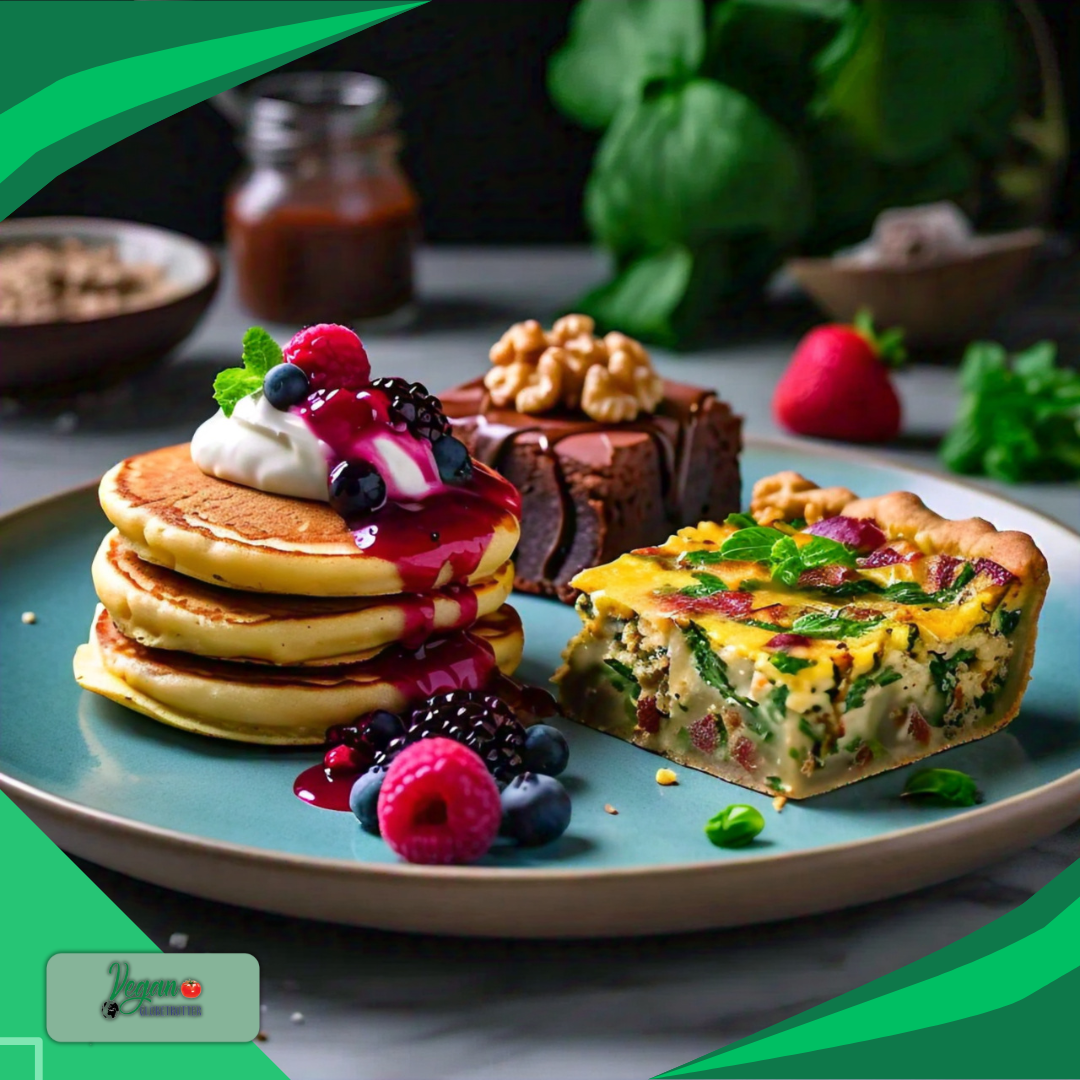
Beyond their culinary benefits, these substitutes also support ethical considerations regarding animal welfare and contribute to a more sustainable food system by reducing the environmental impact associated with egg production. So whether you’re baking a cake, whipping up a savory quiche, or simply experimenting in the kitchen, embracing vegan egg substitutes is a flavorful way to make a positive change for yourself and the planet!
Ready to embark on a delicious vegan journey? Share your favorite vegan egg substitute recipes and tips with our community. Let’s inspire each other to create amazing plant-based dishes.

Frequently Asked Questions
Wondering how to create delicious vegan dishes without eggs? We’ve got you covered! Check out our FAQ to learn about the best vegan egg substitutes and how to use them in your favorite recipes.
What’s the best vegan egg substitute for baking cakes?
Aquafaba, the liquid from chickpeas, and a baking soda + vinegar combo are popular choices for light, fluffy cakes. They help create a rise similar to eggs, without adding extra density or flavor.
What vegan egg substitute works in quiches or omelets?
Silken tofu, blended until smooth, works beautifully for savory dishes like quiches and omelets. For a classic egg-like taste, add a pinch of black salt (kala namak), which has a sulfurous flavor similar to eggs.
What’s aquafaba, and how do I use it?
Aquafaba is the liquid from a can of chickpeas. Use 3 tablespoons of aquafaba to replace one egg in recipes that need whipped egg whites, like meringues or macarons. Whip it until it forms stiff peaks for the best results.
Are vegan egg substitutes healthy?
Yes! Many vegan egg substitutes, like flaxseeds, chia seeds, and tofu, are rich in nutrients like fiber, omega-3s, and protein. They’re often lower in cholesterol and saturated fat than eggs, making them a nutritious choice.
Can I replace eggs in any recipe?
While vegan substitutes work well in most recipes, some dishes like soufflés or very egg-dependent recipes may be challenging to replicate. Experimenting with different substitutes will help you find the best fit for each dish.
Do vegan egg substitutes change the flavor?
Some substitutes, like banana and applesauce, can add a slight flavor, while flaxseeds, chia seeds, and aquafaba are generally neutral. Adjusting the other ingredients can help if flavor is a concern.
Ready to Dive Into The Vegan Lifestyle?
Get ready to explore the world of plant-based goodness with us! From comforting classics to creative new dishes, we’ve got you covered with delicious, easy-to-follow recipes that make vegan cooking a joy. Follow along for practical tips on everything from grocery shopping to meal prep, plus insights to keep you motivated on your journey. And, of course, you’ll be joining a supportive community of like-minded people who are all about embracing a healthier, more sustainable lifestyle.
Let’s make this journey together—one delicious bite at a time!

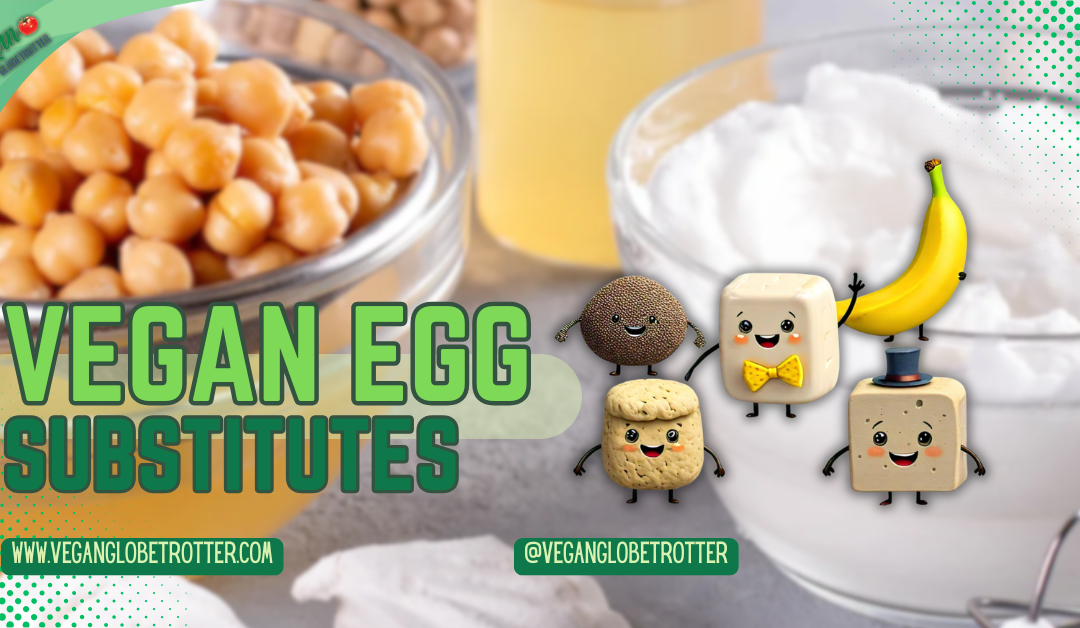



Don't miss out
when new recipes and information are added!
Join our newsletter for free recipes,
healthy living inspiration, and special offers
You have Successfully Subscribed!